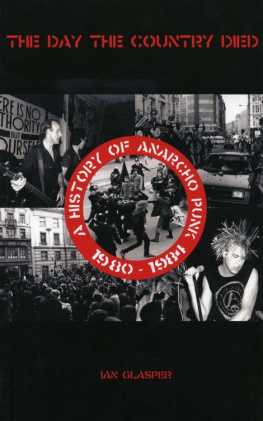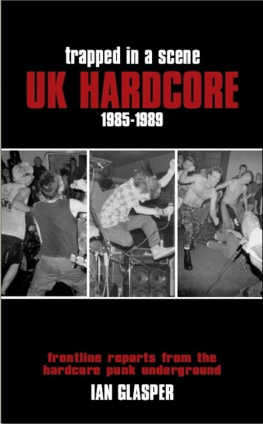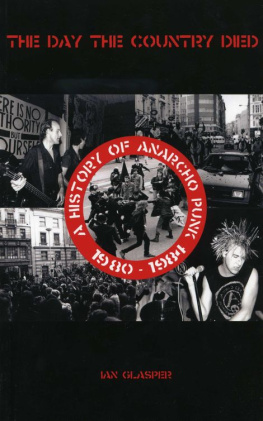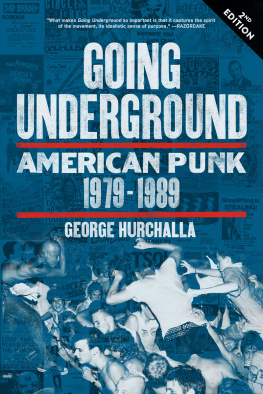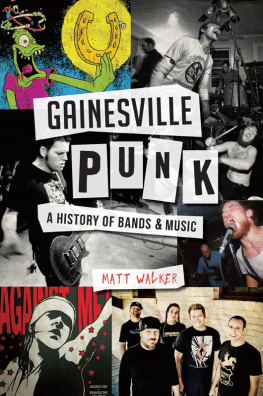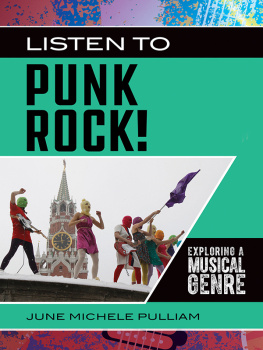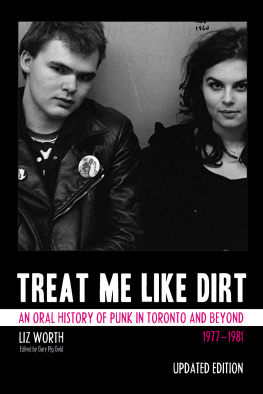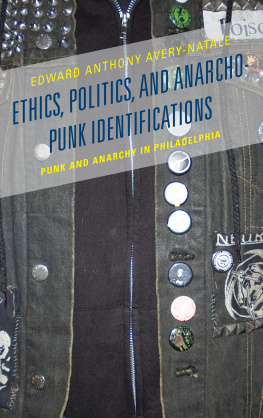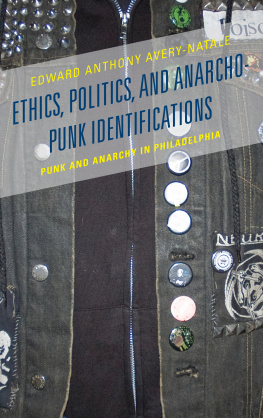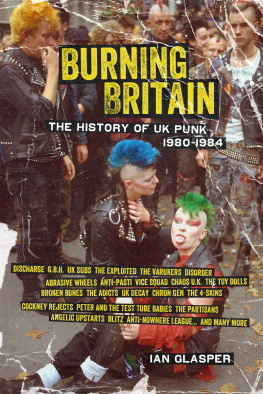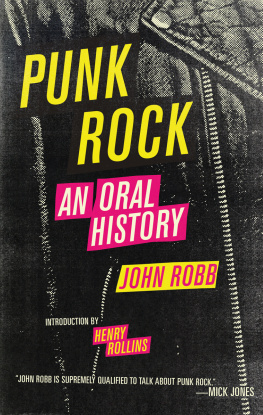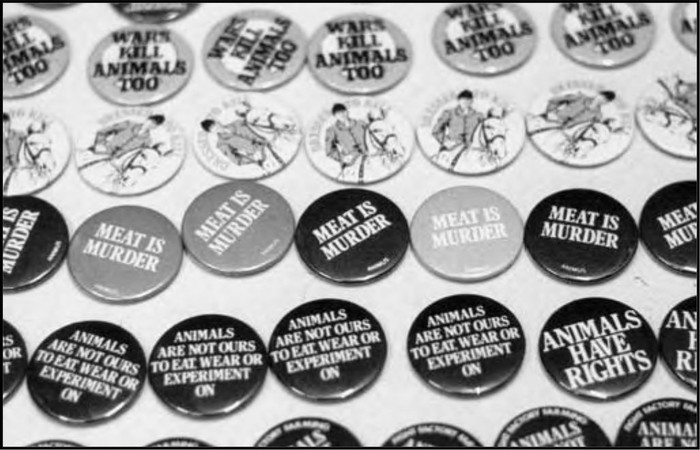But punk music liberated me in so many other ways, and whilst age and responsibility have mellowed me, and to all intents and purposes Im at the beck and call of the system with my regular life, I certainly know my own mind; I dont swallow all their lies, hook, line and sinker, and I do what I can to have a positive effect on those around me. If personal revolution starts with the honest dissection of ones own hopes and fears, Ive been revolting most of my adult life. And believing in yourself is surely the first tentative step towards personal liberation. Maybe Im more of an anarchist, in my own quiet way, than I think
See you again in 2008 with a book all about UKHC from 1985 1989, which will complete my planned trilogy about Eighties punk rock in the UK.
I wish to extend my sincerest gratitude to the following wonderful people:
Sean Forbes (for patience, encouragement, proof-reading and invaluable assistance with the discographies), James Sherry, Steve Cotton, Darren Rat Radburn, Dave Marston, Trunt, Sean McGhee, Roy Wallace; Des, Jimmy, Shrew, Al, and all the Cheltenham punks; Pat Poole and Pat Lawlor; Iain Aitch, John Esplen (Overground), Dmitriy Kovlskiy, for all the kind words (good luck with your own book, mate!); John Welsh; Jamie Cartwright (for the postcard!), Mark Brennan, Rebecca Pollard, Lance Hahn, Aston Stephens, Michael Heatley at Northdown, and, of course, all at Cherry Red, especially Iain McNay, Matt Bristow and Doug Shipton.
The following kind folk for many of the incredible pictures: Tony Mottram, Jaz Wiseman and Marc Freeman, Andrew Medcalf, Paul May (dead_brit@yahoo.com), Mick Slaughter, Mick Mercer, Claire McNamee, Mo, Scotty, Dai Joseph, Lee Holford, Per, Chris Low, Mickey Penguin
All the bands involved for their time and patience, especially those that extended me the hospitality of their own homes: Penny Rimbaud, Gee Vaucher, Steve Ignorant, Colin and Paco, Colin Latter, Dick Lucas, Sid and Zillah, Gary Dirt, Rob Amebix, Phil Anti-System, Eddie Icon, Ian Bone, Steve Lake, and Andy System
Sensei Malcolm McLure and Nigel Lees of OKKO, Sensei Steve Branagan of Ledbury Aikido, and not forgetting Iain Abernethy for being an inspirational karateka, never mind an old punk rocker at heart! All at Terrorizer, especially Jonathon Selzer, Pete Yardley, Damien, Avi Pitchon, James Hoare, and Marion Gardner. Last, and most definitely least, my fellow thrashers in Suicide Watch (especially Richard White) for putting up with my diminishing abilities on the bass guitar!
My wife, Jo, for her unconditional support, my beautiful kids, Amy and Sam, for keeping everything in perspective; mum, dad, Paul, Emma, and everyone else in my immediate family; everyone I work with, for putting up with me and all the Ledbury punks, past present and future, especially Silv, Dave, Renn, Mobs, Paul, Glynn, Darren, Griff, Kev, Big Barr, Trigg, Mav, Captain and Dorris the list is endless. My apologies to anyone Ive forgotten.
This book is respectfully dedicated to the memory of Andrew Stig Sewell, an overlooked genius if ever there was one, whose articulate sense of right and wrong will be sorely missed.
Also in memory of John Loder, a kind and generous visionary, Iain Corrosive Abuse Shiner, and my late, great mate, Dean Uzzell, whose memory is with me always RIP.
Ian Glasper, July 2006
Front cover pics (clockwise from top left): Crass, Liverpool 1984; poll tax riot 1990; Conflict, Leeds Brannigans, 1984; Stop The City, 1984 all by Andrew Medcalf.
Central image: Class Wars Bash The Rich march in Hampstead, Sept 85, by Danny Gralton.
Back cover pics (clockwise from top left): Rob Miller of Amebix, by Paul May; Subhumans; Corny of The Sears, by Marc Freeman; Icons Of Filth vocalist, Stig, by Paul May; Flux Of Pink Indians banners, by Tony Mottram; Laura And Zillah, of Rubella Ballet.
THE DAY THE COUNTRY DIED

Steve Ignorant of Crass, picture by Tony Mottram.
I n the beginning there was Crass although as reluctant leaders of an anarcho punk movement that essentially eschewed all leadership, I doubt theyll thank me for saying that. But they were Year Zero, a very literal line in the sand that translated as Enough is enough! No more corporate companies misrepresenting our music; this was the birth of genuinely DIY labels, whose records were sold at virtually cost price, and bearing Pay No More Than notices to make sure they were. No more big booking agents controlling punk shows, levelling extortionate guarantees; now fans of the music themselves could communicate directly with the bands, and book them into alternative venues at affordable prices, the meagre door takings being ploughed back into worthwhile causes locally. No more glossy magazines dictating how punks should look, sound and behave; anyone who could string two words together and use a stapler was a potential fanzine editor. No more inane lyrics about cider and glue; the kids were taking back control and making a difference.

